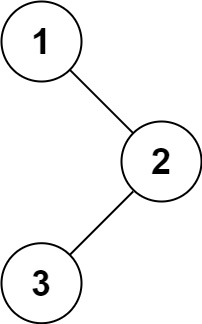2022-06-30
Description
Input: root = [1,null,2,3]
Output: [1,3,2]Input: root = []
Output: []Input: root = [1]
Output: [1]Solution
Approach #0: Recursive
Approach #1: Iterative
Last updated
